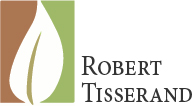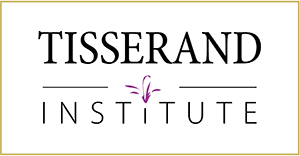In May 1967 my mother went to Paris to hear a lecture by Dr. Jean Valnet, and came back with a signed copy of his book. I was 19. At that time, this was the only in-print book on the subject of aromatherapy that was available in any language. Within ten years, I had trained in soft-tissue massage, and had written my own aromatherapy book. I wrote it as a kind of “companion book” to Valnet’s; his was all about the science of aromatherapy, so I called mine The Art of Aromatherapy. It took me two years to research the material, and another year to write the book. During the 6 months publication process, I worked as a gardener for the London Borough of Southwark. We had lots of tea breaks. I spent most of the time raking leaves, and dreaming about seeing my book in print.
One rainy autumn afternoon, while I was still working on the book, I took a train from London to Cambridge, because I knew that Trinity College Library had a copy of a book I wanted to look at. It had no apparent title, was hand-written in the 13th century, and was described in the catalogue as “A medical work in French apparently based on the Chirurgia of Roger of Salerno.” I don’t remember why I thought it would be useful.
By the time I got to Trinity College Library, filled out a book application, and waited about 30 minutes for the small, compact volume to be delivered to my seat, there wasn’t much time left before the library closed. Old manuscripts are written in a dense, gothic script. Even English manuscripts sometimes look at first like another language. You have to read each word with great care to decipher it. This was my first experience of Medieval French. Time was pressing hard, and I was looking for some words about essential oils! I settled on a passage about frankincense. Not quite the treasure I had hoped for but at least something aromatic, with a rare reference to energetic properties.
Handling old, hand-written books has always been an awesome experience for me, almost like going back in time and feeling what the person who wrote the book was feeling. Most times, I would imagine that I had written it myself, in a previous incarnation. But not this time. In spite of my French heritage (my father was French) the book seemed totally foreign.
As I made my way back home on the rattling train in the dark wet evening I was excited. I was re-discovering the ancient roots of aromatherapy. I was fulfilling a self-appointed mission. In the 1970s there was not much published scientific research on essential oils, and the past seemed an equally valid route to knowledge. So, I had plunged in. My father helped me translate my ten lines, but even so, two of the words resisted translation. Here is the result of my afternoon’s adventures:
Olibanum ceo est encens, il est chaud et Seche el secunde de grei; il ad verru de conforter et de afermer, de traire ensemble, et de rettreindre. Il est bon, en auttre, les fermer des oyls et la dolur de denz, et encontre le hunel et encontre la grossesse et la rouillor des nariles et encontre in digestiun et amer eruc tuations et pur les mameles en greder un podre confit ad eysil e enplastre sur un dray e nus sur le mameles. roine chaude et seche el secunde de grei. Ele advertu a de faire e a degant.
Olibanum is known as frankincense, it is hot and dry in the second degree; it has the capacity to comfort and to fortify, to bring together, and to bind. It is also good for the shutting of the eyes, toothache, and against le hunel [?], and against pregnancy and soreness of the nostrils, and also indigestion and sour eructations. For the breasts, make up a powder prepared with vinegar and plaster on a sheet, and place it on the naked breasts. An excellent remedy, hot and dry in the second degree, it has the property of forming and degant [?].
The last word “gant” here is a verb. As a noun, it means “glove”. Perhaps “de gant” was another way of saying to hold, to bind, to bring together.



now i know why i stopped studying medieval french in university (after years of modern french in second grade)! but i love your story. and i finally have the often asked question whether to pronounce your name in a french or in an english way. as you’re half french i keep my french pronounciation!
I’m so glad to find this website and your story. I’m feeling really excited to find your hidden episode behind publishing process of the art of aromatherapy and also the fact that you found the word about essential oils on the old french book related to Salerno. History of aromatherapy is fun indeed.
Robert, what a beautifully romantic story! You can’t make that stuff up! I’m interested in how frankincense can be used “against pregnancy.” LOL
Sherrie, it’s a literal translation but really means “for pregnancy” or “to help pregnancy”.
Hey Robert, a bit late on this thread but I just had to comment on the Frankincense remedy for sore breasts. This is fascinating as I have a book called ‘A Leechbook or collection of recipes of the 15th Century’, but believed to contain remedies going way back. That formula for frankincense in the French book is almost identical to the one in this book. So I wonder where the origin was, I would suspect it was probably from Arabic medicine. In any case it is an excellent remedy for the problem because of the astringent action of the vinegar combined with the soothing action of the Frankincense.
Hi Martin, I’m pretty sure it came from Dioscorides, but my page on frankincense from his book, photocopied at the British Library, is missing.
What an interesting and colorful post! I love the old libraries of Europe – I love libraries in general, ancient manuscripts (especially illuminated ones), Salerno (Paestum is one of my favorite places), and of course, the amazing benefits of essential oils. I hope you will publish more posts like this one.
Beautiful though it is, isn’t the picture of Trinity College Dublin, and not Cambridge ?
Thank you Ian, I did (unintentionally) post a picture of Trinity College Dublin. Now changing to Trinity College Cambridge (I believe also known as the Wren Library)!